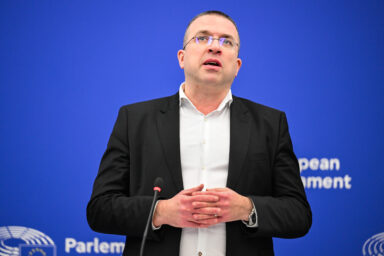The European Commission has rolled out two plans to tackle environmental decline: the Roadmap towards Nature Credits, a market-based mechanism to fund biodiversity; and a critical audit of member states’ patchy enforcement of green laws.
The twin schemes—one a carrot, the other a stick—aim to close a €65bn annual funding gap for nature while shaming laggards into upholding existing rules. The Roadmap towards Nature Credits, unveiled on 7 July, seeks to monetise conservation. Businesses, landowners or communities that restore wetlands, expand forests or protect fisheries can earn tradeable credits certified by independent bodies. Buyers—from companies to municipalities—gain reputational perks and risk mitigation.
Ursula von der Leyen, the Commission’s president, calls it “putting nature on the balance sheet”. The scheme targets farmers and foresters, offering them income for eco-friendly practices. Pilots in France, Estonia and Peru will test the concept, with global partners like the World Economic Forum providing input.
Mutual reinforcement
Yet markets alone cannot remedy systemic failures. The fourth Environmental Implementation Review, published the same day, lays bare the cost of lax enforcement. Air and water pollution, habitat loss and poor waste management drain €180bn yearly—1% of EU GDP. Half of the bloc’s surface water is unhealthy; many states flout rules on emissions or species protection. The Commission urges better use of €122bn in annual EU environmental funds and easier public access to courts to challenge illegal projects.
The initiatives are designed to reinforce each other. Nature credits could channel private cash into areas where states fall short—say, peatland restoration in regions missing EU nature targets. Conversely, stricter enforcement would bolster investor confidence by ensuring credit-backed projects are not undercut by weak regulation. The EU’s credibility hinges on both. Over half of global GDP—and two-thirds of the bloc’s economic value—depends on ecosystem services. Climate-linked risks, from supply-chain chaos to crop failures, could erase 7% of corporate profits by 2035 without action.
You might be interested
This is how we build competitiveness: by valuing nature as our most vital asset. Ursula von der Leyen, EC President
Doubts linger. Previous biodiversity schemes have foundered on greenwashing and murky metrics. The Commission promises “robust governance” to avoid such pitfalls. A new expert group will design certification standards by mid-2026, with public feedback sought until September 30th. Rules must align with the EU Nature Restoration Regulation and the Kunming-Montreal biodiversity pact. But voluntary credits lack teeth—a worry as Brussels seeks to spur innovation without stifling firms.
Member states find loopholes
The Review exposes deeper tensions. Though the EU will allocate 10 per cent of its budget to biodiversity by 2026-27—doubling external spending to €7bn—member states often sidestep binding targets. The Commission’s plea for “fair competition” through uniform rules rings hollow when national governments prioritise short-term economic fixes over sustainability.
For now, Brussels treads cautiously. The credits roadmap avoids mandates, relying on “bottom-up” input from firms and NGOs. The Review names no culprits, instead urging states to streamline green litigation. Whether this approach can marry profit and preservation remains unclear. For the EU, the challenge lies in balancing innovation with oversight—ensuring nature credits drive tangible gains without diluting regulatory rigor. “This is how we build competitiveness: by valuing nature as our most vital asset,” said Ms von der Leyen.
Key takeaways from the review
- circular economy: while some member states are making good progress in using resources as effectively as possible when producing goods and services, many are still at risk of missing the 2025 recycling targets. For example, the report finds that several member states should improve waste prevention and rehabilitate substandard landfills
- water: urgent action is needed to meet EU goals on freshwater quality and quantity and to mitigate the growing risk of water scarcity and drought. Member states need to make better use of available EU funds to collect and treat urban wastewater
- biodiversity: loss of biodiversity continues to prevail over recovery. This is mainly due to the change of land use for agricultural purposes and agricultural intensification. Member states need to improve the mainstreaming of nature protection across other policies and speed up the implementation of nature legislation.
- air pollution: despite considerable progress, the level of air pollutants is still too high in many Member States. This poses serious concern to citizens’ health. Air quality can be improved by switching to sustainable mobility powered by renewables, improving energy efficiency, introducing low-emission agricultural techniques, including for livestock, manure and fertiliser management
- climate: adaptation efforts in each Member State need to be intensified to cope with the increasing climate change impacts. While the EU has managed to decouple emissions of greenhouse gases from economic growth, several Member States have difficulties with the implementation of emission trading system for buildings, road transport and small industry.











